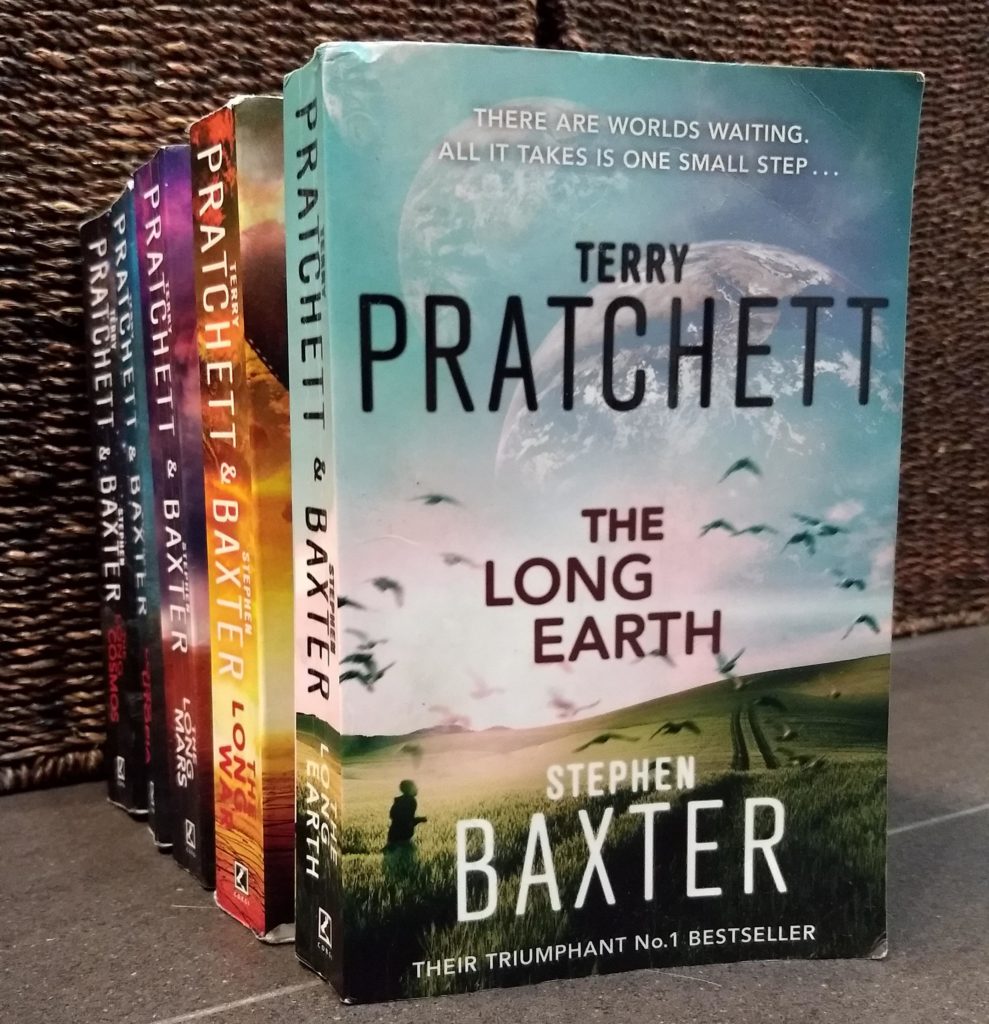
Like a lot of great SF, this starts with just one single premise. What if we suddenly discovered an unlimited number of pristine Earths, and we could all travel between them at the flick of a switch?
One day, a blueprint for a very simple electrical device appears on the Internet. Thousands of people build one of these little boxes, flick the switch — and disappear. They’ve “stepped” to an alternative Earth, untouched by humans. From there they can go back or continue on to a multitude of more-or-less parallel Earths. The story follows a number of characters through the massive social changes that follow on from this: suddenly there are endless frontiers, on pristine worlds where environmental degradation and climate change are irrelevant. There is also a lot of sci-fi adventure as people explore millions of the alternative Earths, some of which are very different — essentially alien worlds. And they don’t just stop there — the third book in the series is called The Long Mars.
The characters are interesting and fun to read about. There’s the normal guy with super(-stepping) powers; the cantankerous and brilliant inventor; the tough frontierswoman; and of course the Tibetan auto mechanic reincarnated as an omnipotent distributed AI system.
 I loved this book of short stories even though most of them don’t end especially happily. The stories are written in a variety of voices, but almost all concern young women navigating problematic relationships. (Some of the women are older; some stories focus on men; but relationships are a constant.) Reading each story feels like inhabiting the character. It’s fun to be in someone else’s skin for a few minutes.
I loved this book of short stories even though most of them don’t end especially happily. The stories are written in a variety of voices, but almost all concern young women navigating problematic relationships. (Some of the women are older; some stories focus on men; but relationships are a constant.) Reading each story feels like inhabiting the character. It’s fun to be in someone else’s skin for a few minutes.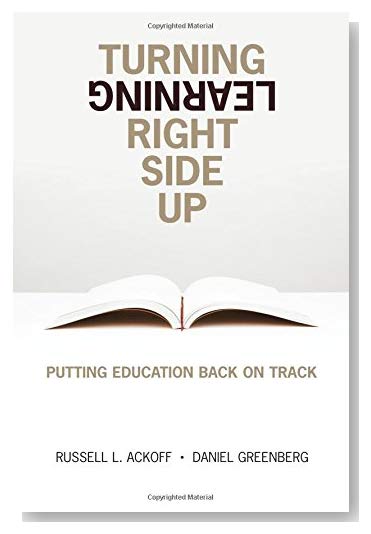 Standard education systems are broken: Turning Learning Right Side Up points towards a way of fixing them. It argues that the current system of education was designed for purposes that no longer make sense. (Ken Robinson’s TED talk
Standard education systems are broken: Turning Learning Right Side Up points towards a way of fixing them. It argues that the current system of education was designed for purposes that no longer make sense. (Ken Robinson’s TED talk 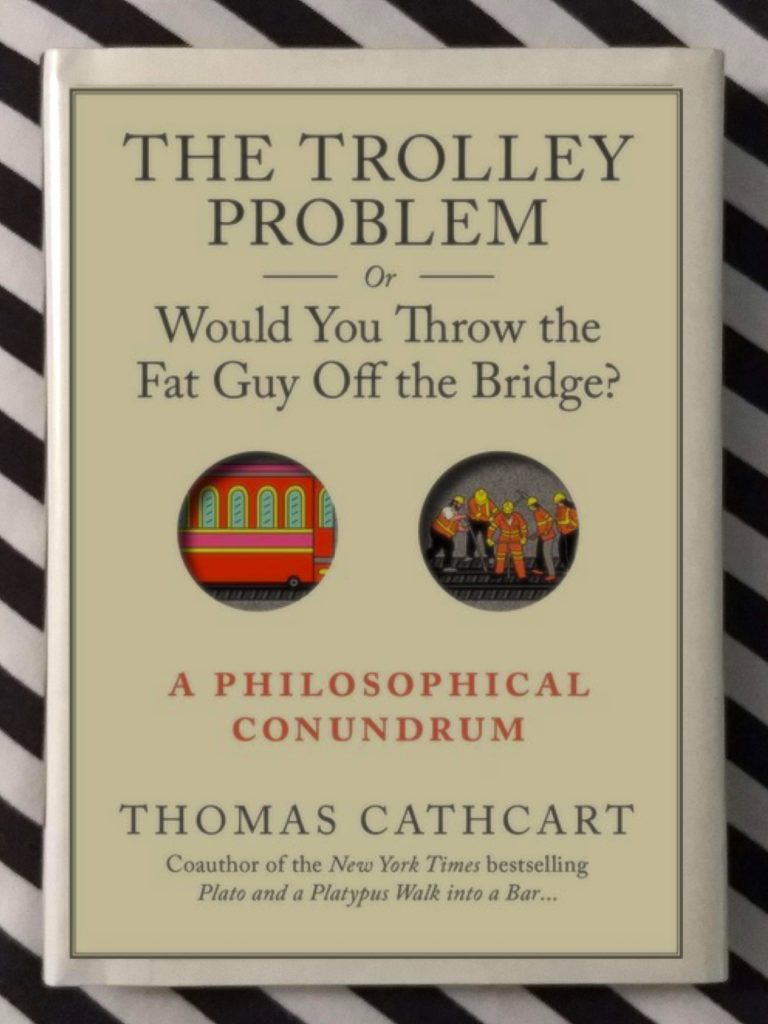
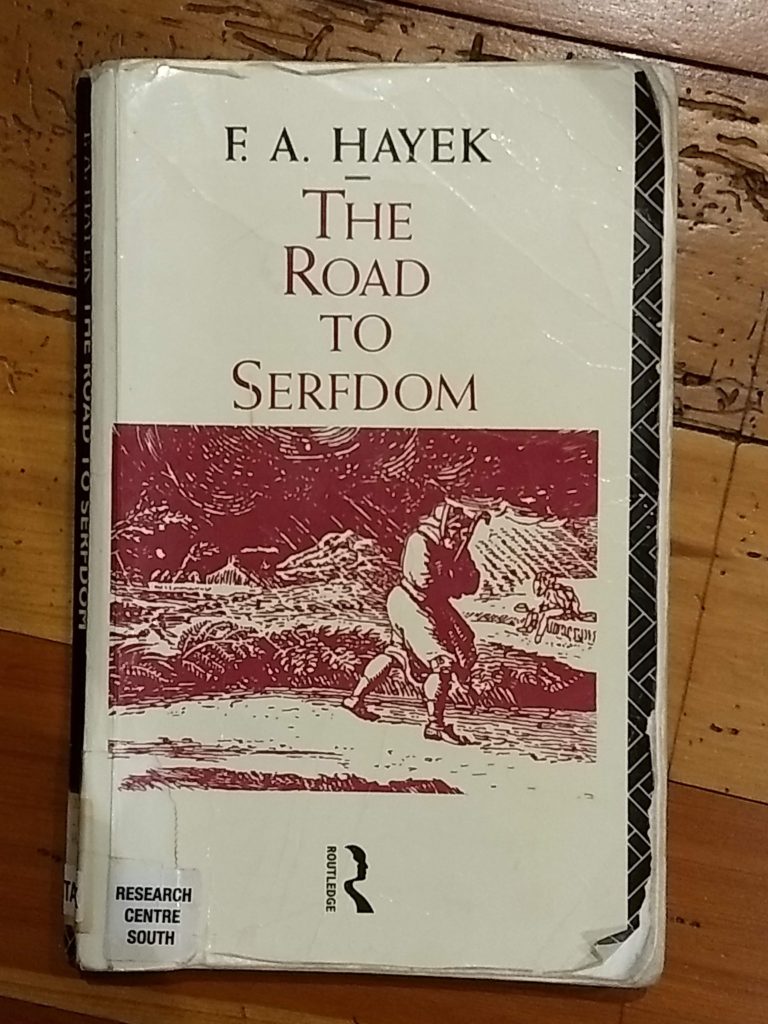 “Freddie” Hayek is, of course, famous for the
“Freddie” Hayek is, of course, famous for the 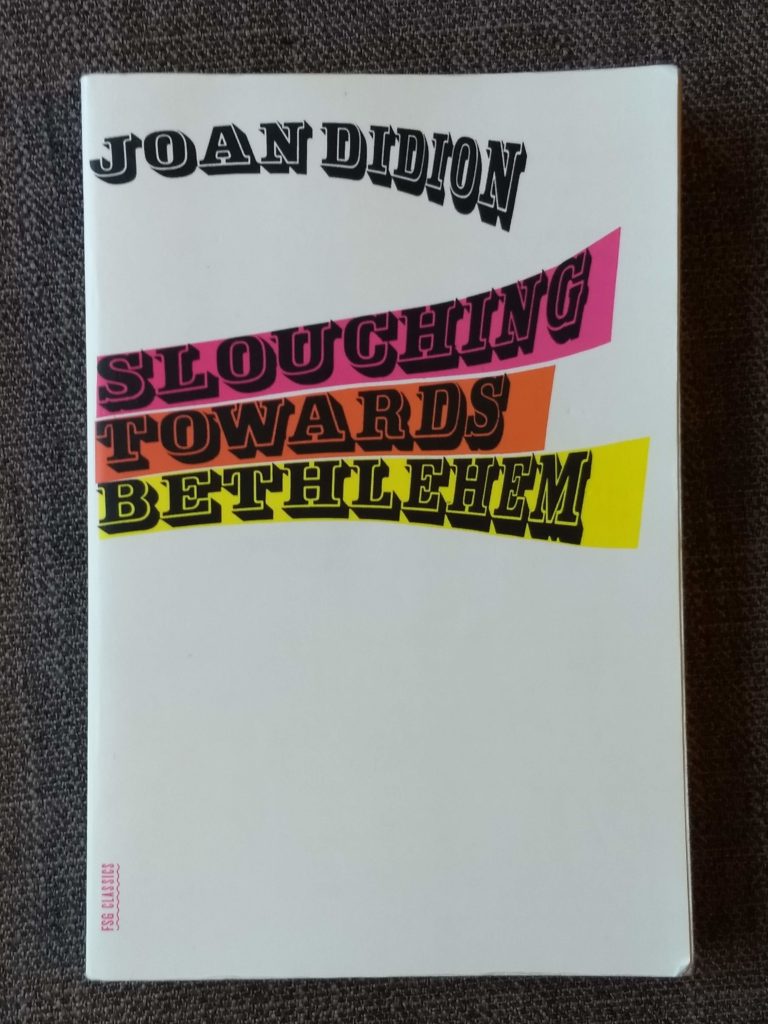 This classic book of essays is divided into three parts. The first part covers California in the 1960s. This makes the sixties seem just as crazy as their reputation — Didion lived through some turbulent times back then so I’m glad she wrote it all down for us to read about. The third part of the book is more varied as she writes about various other places from different viewpoints.
This classic book of essays is divided into three parts. The first part covers California in the 1960s. This makes the sixties seem just as crazy as their reputation — Didion lived through some turbulent times back then so I’m glad she wrote it all down for us to read about. The third part of the book is more varied as she writes about various other places from different viewpoints. This is a nice pocket-sized guide to consciousness. Actually it’s a guide to the problem of consciousness, since there is no consensus on what consciousness is or even exactly what the word means. Blackmore is even-handed regarding the various competing viewpoints, though it may all be slightly coloured by her own views, which are heavily influenced by Buddhism. And if you think that’s an incongruous stance for a hardcore psychologist/philosopher to take, then you really should read this book.
This is a nice pocket-sized guide to consciousness. Actually it’s a guide to the problem of consciousness, since there is no consensus on what consciousness is or even exactly what the word means. Blackmore is even-handed regarding the various competing viewpoints, though it may all be slightly coloured by her own views, which are heavily influenced by Buddhism. And if you think that’s an incongruous stance for a hardcore psychologist/philosopher to take, then you really should read this book.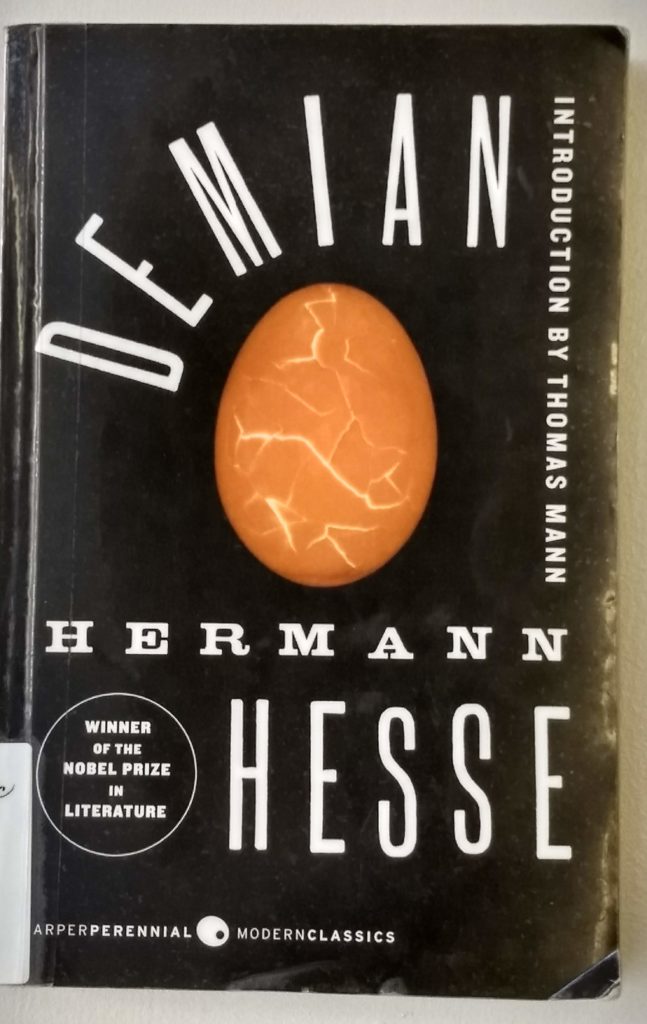 Demian is very mysterious and alluring. This book is about him and his influence on the narrator — they first meet when they are both schoolboys. Demian then turns up repeatedly as the years go by, gradually taking the narrator into a circle of freethinking misfits. It’s less fanciful than the other Hesse novels I have read, but still packs a bit of a punch.
Demian is very mysterious and alluring. This book is about him and his influence on the narrator — they first meet when they are both schoolboys. Demian then turns up repeatedly as the years go by, gradually taking the narrator into a circle of freethinking misfits. It’s less fanciful than the other Hesse novels I have read, but still packs a bit of a punch.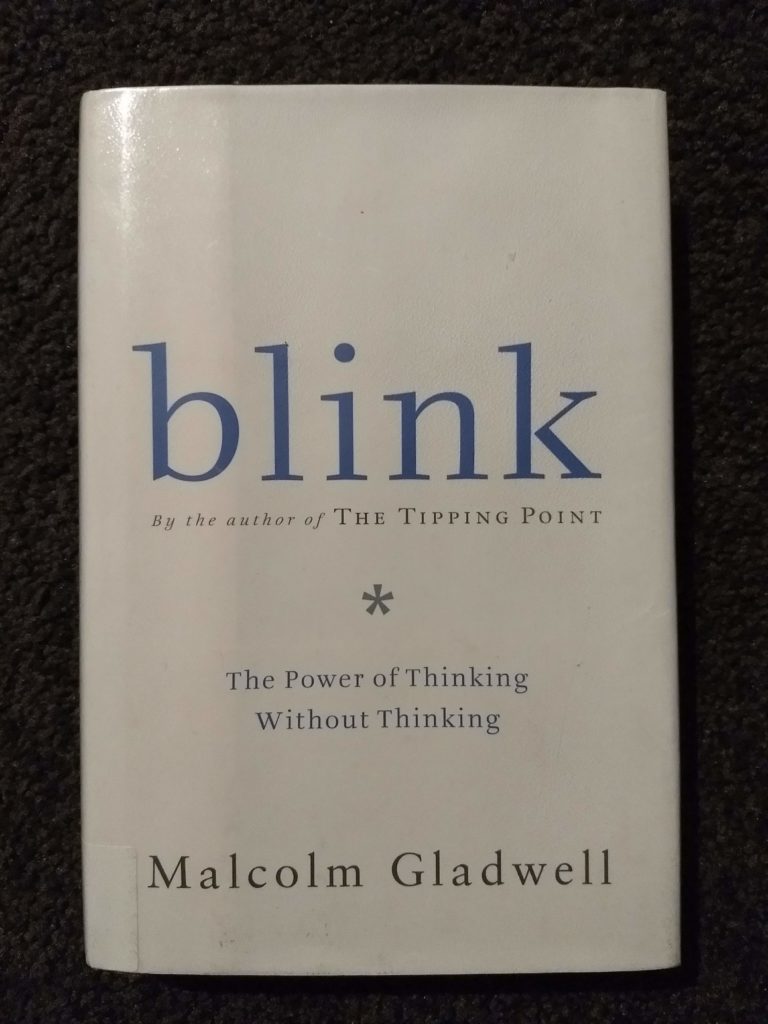 Snap judgements are surprisingly accurate. Even the ones we make without knowing how. Even the ones we make when we don’t even know we are doing it: “I just had a bad feeling about him, I can’t explain it”. This book gives evidence and explanations for this. It’s interesting in itself, but the trouble is it has been a very influential book — since it was published, its examples have been cited and reused so many times in so many places that what must once have been groundbreaking now seems overly familiar. I had similar thoughts the last time I saw a performance of Hamlet: the dialogue just seemed to be one cliche after another. Of course, they weren’t cliches when Shakespeare wrote the play!
Snap judgements are surprisingly accurate. Even the ones we make without knowing how. Even the ones we make when we don’t even know we are doing it: “I just had a bad feeling about him, I can’t explain it”. This book gives evidence and explanations for this. It’s interesting in itself, but the trouble is it has been a very influential book — since it was published, its examples have been cited and reused so many times in so many places that what must once have been groundbreaking now seems overly familiar. I had similar thoughts the last time I saw a performance of Hamlet: the dialogue just seemed to be one cliche after another. Of course, they weren’t cliches when Shakespeare wrote the play!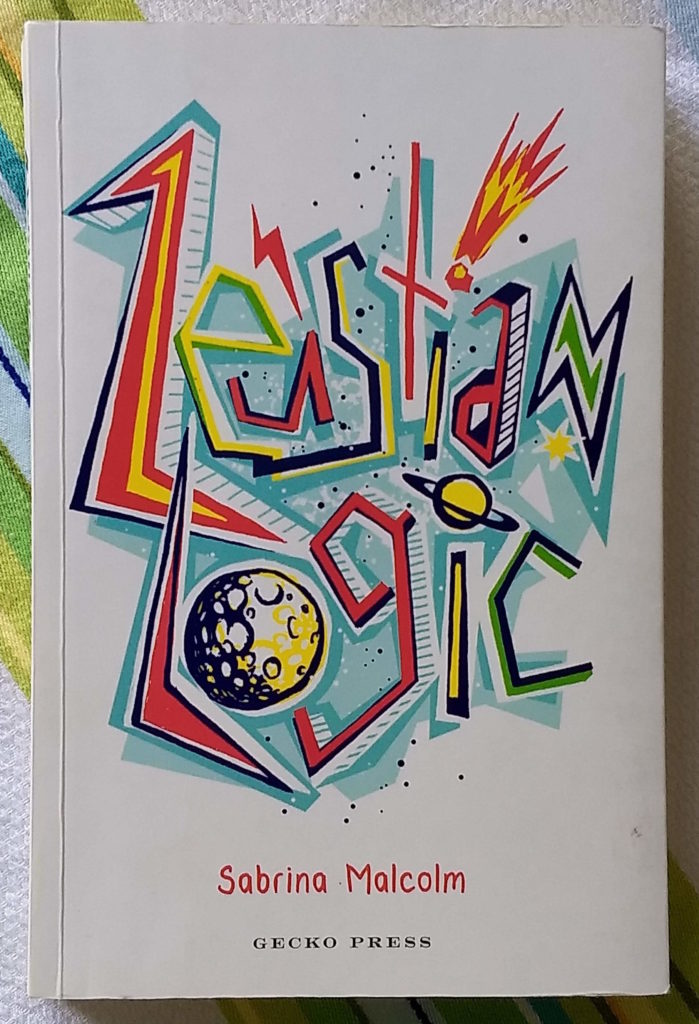 This story is more fun than you would think, given that it is about a teenage boy coming to terms with his father’s death. Astronomy and mythology are two of Tuttle’s boyish hobbies; they run like threads through the stories he tells his younger brother and the conversations he has with his friend, and also play a big part in the novel’s resolution. His father, a famous mountaineer, disappeared in controversial circumstances which made his loss even harder for his family to deal with. The repercussions continue even a year later, when the novel is set.
This story is more fun than you would think, given that it is about a teenage boy coming to terms with his father’s death. Astronomy and mythology are two of Tuttle’s boyish hobbies; they run like threads through the stories he tells his younger brother and the conversations he has with his friend, and also play a big part in the novel’s resolution. His father, a famous mountaineer, disappeared in controversial circumstances which made his loss even harder for his family to deal with. The repercussions continue even a year later, when the novel is set.